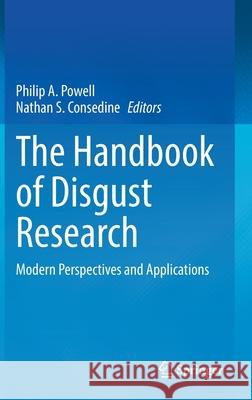The Handbook of Disgust Research: Modern Perspectives and Applications » książka
topmenu
The Handbook of Disgust Research: Modern Perspectives and Applications
ISBN-13: 9783030844851 / Angielski / Twarda / 2021 / 312 str.
Kategorie:
Kategorie BISAC:
Wydawca:
Springer
Język:
Angielski
ISBN-13:
9783030844851
Rok wydania:
2021
Wydanie:
2022
Ilość stron:
312
Waga:
0.61 kg
Wymiary:
23.39 x 15.6 x 1.91
Oprawa:
Twarda
Wolumenów:
01
Dodatkowe informacje:
Wydanie ilustrowane











